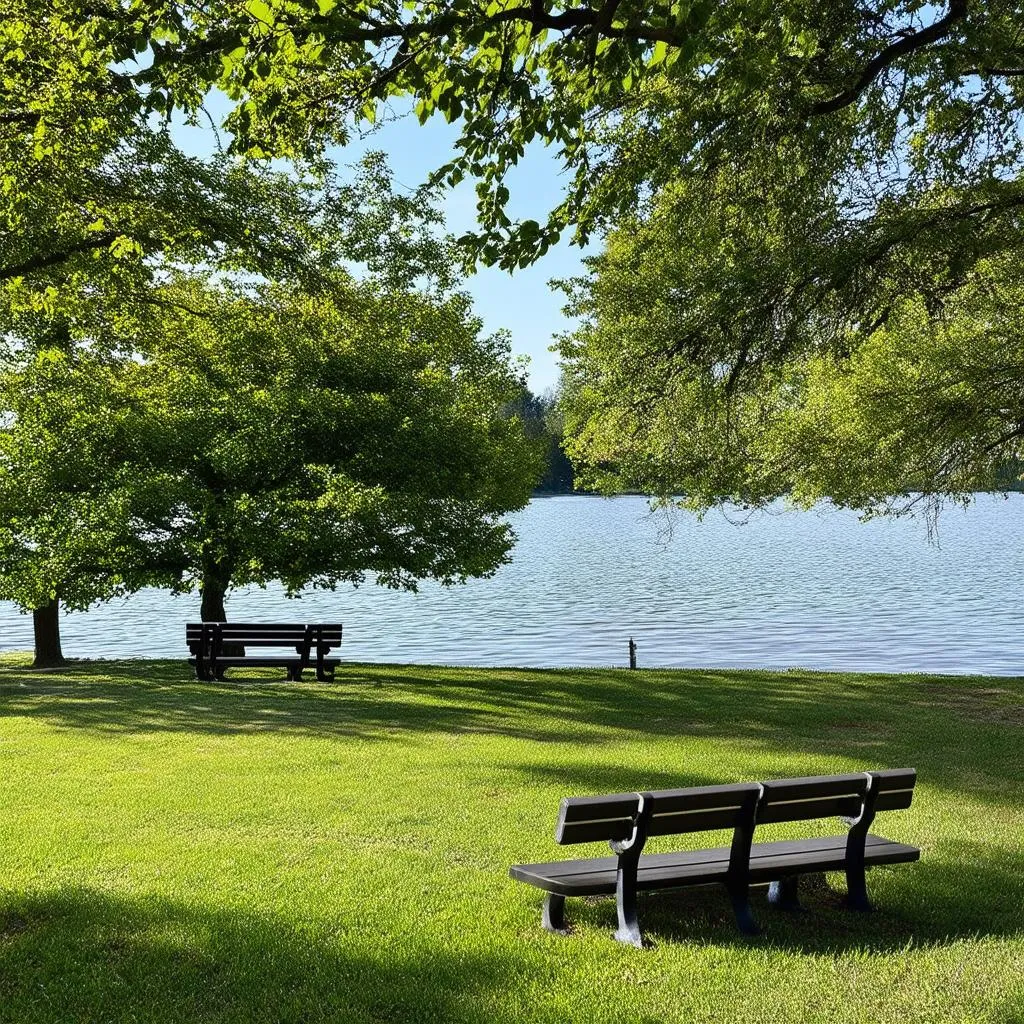The IELTS Speaking Test is designed to assess various aspects of your spoken English including fluency, pronunciation, and grammatical range and accuracy. Consistency in these aspects can greatly enhance your score. This guide focuses on a specific Speaking Part 2 topic: Describe a place where you like to go to think things over. It’s a popular topic that requires you to be descriptive, organized, and articulate. Follow this guide to enhance your skills and boost your IELTS Speaking score.
Part 1: Introduction and Interview
Common Questions
In Part 1, examiners ask familiar questions to help you get comfortable. Here are some likely questions and tips for answers:
-
“Do you enjoy spending time alone?”
Sample Answer:
“Yes, I quite enjoy spending time alone. It gives me the space to be introspective and focus on my thoughts without distractions. Often, I use this time to organize my day or reflect on decisions I need to make.”Analysis: The use of phrases like “quite enjoy” and “reflect on” demonstrates nuanced vocabulary and clarity of thought.
-
“What kind of places do you like to visit when you’re alone?”
Sample Answer:
“I usually prefer serene and natural surroundings such as parks or small cafes where I can sit quietly. These places provide a peaceful ambiance that’s conducive to thinking and unwinding.”Analysis: Adjectives like “serene” and “natural” add richness to your description, enhancing your lexical resource score.
Part 2: Long Turn
Cue Card
Your cue card might look like this:
Describe a place where you like to go to think things over. You should say:
- Where this place is
- What it looks like
- Why it’s a good place for thinking
- And explain what benefits you get from going there
Sample Answer
“I often go to a tranquil lakeside park near my home to think things over. This park is about a 15-minute walk from my house and sits on the edge of a small, picturesque lake surrounded by tall, leafy trees. The scenic beauty and the gentle sound of the water create a soothing atmosphere that helps me clear my mind.

One of the reasons I find it ideal for thinking is the solitude it offers. There are usually few people around, making it easy to focus. Moreover, the fresh air and the natural environment tend to lift my spirits and improve my concentration. I often bring a book or a notebook to jot down thoughts as they come to me.
Visiting this park benefits me greatly. It allows me to detach from the hustle and bustle of daily life. I feel rejuvenated and mentally refreshed after spending time there, which enables me to return to my tasks with renewed energy and clearer perspective.”
Follow-up Questions
-
“What other activities do you do in this place apart from thinking?”
Sample Answer:
“Besides thinking, I often engage in light physical activities like jogging or walking. Sometimes, I also practice meditation to further calm my mind and enhance my focus.”Analysis: Use of words like “physical activities” and “meditation” diversify your vocabulary and show a range of actions and benefits.
Part 3: Two-way Discussion
Examiner Questions and Responses
-
“Why do you think it’s important to have a place to think things over?”
Sample Answer:
“Having a dedicated place to think allows individuals to step back from their daily routines and evaluate their lives from a different perspective. It encourages mindfulness and helps in making informed decisions without external pressures.”Analysis: Terms like “evaluate“, “mindfulness“, and “informed decisions” display your ability to discuss abstract concepts.
-
“Do different age groups prefer different places for thinking? Why?”
Sample Answer:
“Yes, I believe preferences differ across age groups. Young adults might prefer cafes or libraries filled with modern conveniences, while older individuals might lean towards natural settings like parks. The choice often reflects their lifestyle and what they find most relaxing.”Analysis: Contrast in preferences and words like “modern conveniences” and “natural settings** enrich your discussion.
Vocabulary and Phrases to Enhance Your IELTS Speaking Score
Here’s a valuable list of vocabulary and phrases:
- Tranquil /ˈtræŋkwɪl/ – peaceful and quiet: “The tranquil lake was the perfect place to reflect.”
- Scenic beauty /ˈsiːnɪk ˈbjuːti/ – attractive and picturesque landscape: “The scenic beauty of the countryside was breathtaking.”
- Solitude /ˈsɒlɪtjuːd/ – the state of being alone: “I enjoy the solitude of my garden.”
- Rejuvenated /rɪˈdʒuːvəneɪtɪd/ – feeling restored: “A short walk in the park makes me feel rejuvenated.”
Example Use:
“The solitude of the tranquil park, with its scenic beauty, leaves me feeling rejuvenated every time I visit.”
Conclusion
Preparing for the IELTS Speaking Test requires careful practice and the ability to convey your ideas clearly and effectively. Focus on expanding your vocabulary, using varied grammatical structures, and practicing speaking fluently. Consistent practice, like going through sample cue cards and engaging in two-way discussions, will significantly enhance your performance. For more practice and tips, check out Describe a place where you go to focus on your work and Describe a time when you had to learn something on the job.